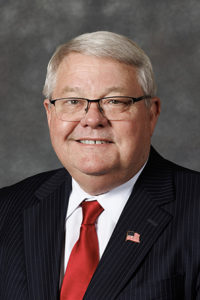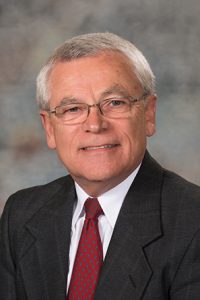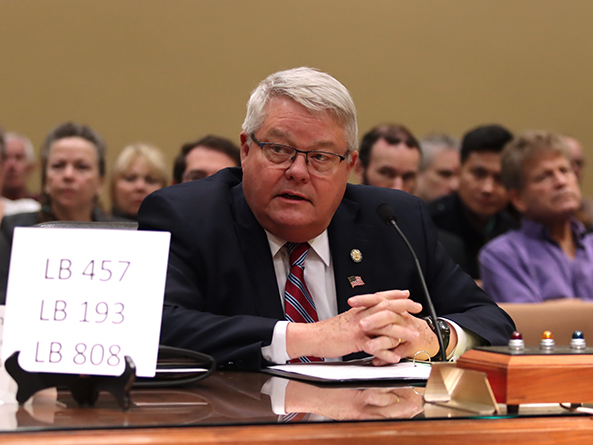Bills would require election changes
The Government, Military and Veterans Affairs Committee heard combined testimony on a trio of bills March 22 that would make changes to Nebraska’s election laws.

LB457, sponsored by Bellevue Sen. Rick Holdcroft, would require video surveillance of voting areas and implementation of anti-counterfeiting ballot techniques, including a watermark, a holograph and other techniques used to protect U.S. paper currency.
The bill also would require that any vote scanning device or tabulating equipment be verified and certified by election officials to be incapable of executing any embedded code or triggers on scanned ballots.
Holdcroft said he believes that Nebraska’s elections are more secure than those in most other states, but that more needs to be done to instill faith among voters in the integrity of the process.
“Citizens need to be able to verify that their vote was counted as it was cast, and an effective way to do that is to add serial numbers to the ballots,” he said.
LB193, introduced by Hastings Sen. Steve Halloran, would prohibit any voting system or component from being purchased or used unless designed, manufactured, integrated and assembled in the U.S. from entities accredited by the U.S. Department of Defense.
Halloran said approximately 20 percent of software and hardware components in election equipment comes from suppliers in China. Having parts that are made in America would help restore public trust in elections, he said.
“When we allow our voting system to remain open in this way to foreign adversaries, they are potentially vulnerable to exploitation,” Halloran said.

He also introduced LB808, which would permit election commissioners and county clerks to conduct a hand count for tabulating votes cast in any election. The bill also would allow an apparent loser at a general election to request and receive a hand recount.
Danna Severs, chairperson of the Seward County Republican Party, testified in favor of all three proposals. She said an election audit conducted by the secretary of state’s office that she participated in revealed flaws in oversight of the state’s elections. One reason, she said, was that county clerks had advance notice of which precincts would be audited.
“I don’t know the other 92 clerks across the state,” she said. “If they know, and they have a week — and the boxes are open when you arrive — how is that an audit?”
Greg Epp also testified in support, although he said all three bills could go further.
“Our elections lack transparency, in my opinion, and election integrity … is the most important issue that will come before this Legislature,” Epp said.
Arlo Hettle testified against all three proposals on behalf of the Nebraska Civic Engagement Table. The current manufacturer of Nebraska’s election equipment is based in Omaha, he said, and the machines go through extensive testing.
He said the cost to implement the three bills would be better spent making polling places accessible to Nebraskans with disabilities and addressing other voter needs.
“These bills are proposed solutions that would make our election system more expensive and less accurate,” Hettle said.
Also testifying in opposition was William Davenport of Lincoln, a former election judge. Davenport questioned the feasibility of installing surveillance cameras in polling places, most of which are not government property. Doing so would invade voters’ privacy and perpetuate the false narrative that election workers are manipulating votes — something that there is no evidence of in Nebraska, he said.
The committee took no immediate action on any of the bills.


